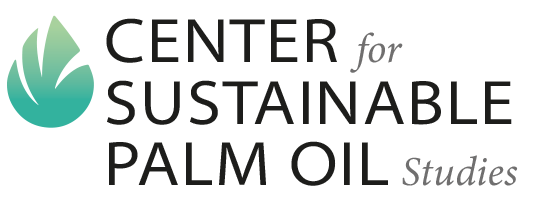
This month, a new landmark report was issued by the Schumacher Institute, a UK-based think-tank funded by the European Commission, arguing that the COVID-19 pandemic did not suddenly appear out of the blue. Rather, it is a direct consequence of industrial civilization’s breaching of critical natural ecosystems which maintain what scientists describe as the ‘safe operating space’ for human survival on the planet.
The report ‘Deforestation and the Risk of Collapse: Reframing COVID-19 as a Planetary Boundary Effect’, was produced by Dr Nafeez Ahmed, Research Fellow at the Schumacher Institute and an advisor to EU-backed research programme on the low carbon transition.
The global economy, the study warns, has now entered a dangerous new era of chronic instability due to the interaction of many crises including climate change, resource bottlenecks, and food system failures. These can only be tackled through changing global economic relationships. This must include debt-free financing to enable transitions to renewable energy, nationalisation and winding down of fossil fuel industries, as well as ecological restoration for clean manufacturing and agriculture.
But most significant of all the report noted, is the need to alter the path of deforestation through a radically different approach to commodities like palm oil and support for the transition to sustainable production. That requires a new global pact on deforestation premised on ensuring that major commodities from beef to soy are produced within planetary boundaries based on consistent global standards.
He notes that: “The COVID-19 pandemic is not just a pandemic. When looked at in the context of a wide-range of scientific data about the escalating human footprint on the planet, the pandemic represents the passing of a major civilizational tipping-point into a dangerous new era of converging ecological emergencies.”
In fact, the COVID-19 pandemic has exposed structural weaknesses and interdependencies across global systems, the new report says. But at the heart of these weaknesses is the increasing dependence of industrial consumption on processes that are accelerating deforestation. That requires both enforcing sustainable practices by producers in the South while curtailing demand in the North.
The probability of a global pandemic was dramatically increased by relentless and unregulated industrial expansion, which has destabilized ecosystems critical for planetary life-support. The same processes are driving other ecological crises which threaten to permanently undermine the health of the global economy.
Dr Ahmed also emphasized the need for policymakers to pay attention to the fact that the public health crisis is a symptom of a deeper crisis: a civilization degrading the very conditions of its own existence.
Deforestation is now widely recognised in the scientific literature as a symptom of planetary overshoot. This includes a direct role in driving up rates of carbon emissions contributing to global climate change (accounting for 15 percent of emissions), exacerbating local and regional climate volatility, and even more seriously, contributing to the near-term destabilisation of the stable resource relationships by which human societies are able to function.
The report also criticizes the European Union approach to tackling deforestation, as deeply flawed. The typical European narrative tends to blame deforestation on the activities of developing nations in the Global South. But this simplistic narrative actually shifts responsibility without acknowledging the key role played by European and Western nations in driving deforestation.
The EU move to tackle deforestation by enacting recent legislation targeting palm oil, as well as ongoing discussions and draft proposals by policymakers in Brussels ignores the fact that Europe is itself a major driver of deforestation. This can be seen both directly due to its own forest and agricultural practices, and indirectly due to its consumption of commodities linked to deforestation abroad.
The report also highlights fact that the largest driver of deforestation in the world is actually—beef production. This largely takes place in South America and accounts for approximately 34 percent of carbon emissions linked to deforestation. In contrast, the palm oil produced by countries in Asia accounts for only about 14 percent—less than half of what beef production creates.
In particular it is Brazil that ranks first in deforestation worldwide. In 2019, the country accounted for over a third of all computed loss in humid tropical primary forests. In the first semester of 2020, deforestation has increased by 25% compared with the same period in the previous year. In 2020 more than 55% of the Brazil’s deforested lands have also been burned. More worrying has been that 72% of the lands that were deforested were actually recognised as conservation areas and indigenous lands—meaning that deforestation took place with the knowledge and consent of the authorities.
The Schumacher report identifies that about a third of the EU’s beef imports come from illegally deforested zones in South America. European Commission data also showed that between 1990 and 2008, soybean products imported from South America accounted for roughly 82 percent of deforestation attributed to the import of oil crops into the EU, compared to palm oil imports accounting for 17 percent of deforestation associated with EU oil crops.
With these figures, the errors in EU policy can clearly be seen. Even among the scientific community the EU policy on palm oil has also been discredited. According to the Schumacher report the EU’s approach on deforestation oil is rather contradictory considering the unimpeded import of beef and soy is responsible for a third of deforestation-linked carbon emissions.
Numerous scientific studies have shown that focusing on single commodity increases rates of deforestation, because it leads to a switch in demand to alternatives to palm oil—which actually require much more energy, land, water and fertiliser to produce. Therefore, it is incorrect for the EU to focus on palm oil as opposed to commodities including beef and soy.
While Brazilian deforestation has increased dramatically, there has been significant success in reducing the rate of forest loss in Malaysia. Its success in slowing the rate of deforestation in recent years builds on a longer- term process. Although its oil palm area continued to expand from 1973 to 2010, studies show that deforestation began to slow down from the mid-1980s, due to economic diversification.
However, most of the more recent progress has coincided with the implementation of a new national sustainable certification scheme, Malaysia Sustainable Palm Oil (MSPO) – the world’s first government-backed, legally-enforceable sustainable certification programme for palm oil. Under the programme, the government would enforce a moratorium on palm oil expansion to protect forest cover at 50 percent, accompanied by enforced mandatory sustainability standards aimed at certifying 100 percent of Malaysia’s palm oil production.
The EU should work with Malaysia to find ways to scale-up and support the MSPO model. This in turn could establish a framework for cooperative action that can be strengthened within Malaysia and applied to other production processes outside Malaysia in areas at risk of deforestation. The MSPO model could, for instance, provide a powerful test-case for a viable sustainable conservation approach that could be applied not only in other areas of Southeast Asia, but also in South America and elsewhere to address deforestation challenges facing other oilseeds and, of course, the biggest driver of deforestation in the world in the form of beef production.
Closer independent scientific study, evaluation and monitoring of the MSPO approach, along with appropriate policy incentivization and partnerships, will be needed to permit the model to be scaled up in regions at acute risk of biodiversity collapse.
The Schumacher report concludes that the EU’s entire policy approach is dangerous for the environment and should change. The report urges the EU to develop a renewed approach which does not focus solely on one commodity, but instead establish a single standard for sustainability applied to all commodities. It argues that the EU must recognise that deforestation is a by-product of larger industrial forces rather than a primary driver in itself, and only one symptom among several others.
The MSPO has set a high standard for combatting deforestation that should be encouraged rather than boycotted. Thus, the EU should ensure that the MSPO certification scheme is built upon to develop strategies to protect other industries against deforestation. The EU must take its responsibility seriously as a global leader in environmental governance: the progress towards tackling deforestation needs to be incentivized by supporting initiatives proven to work.







